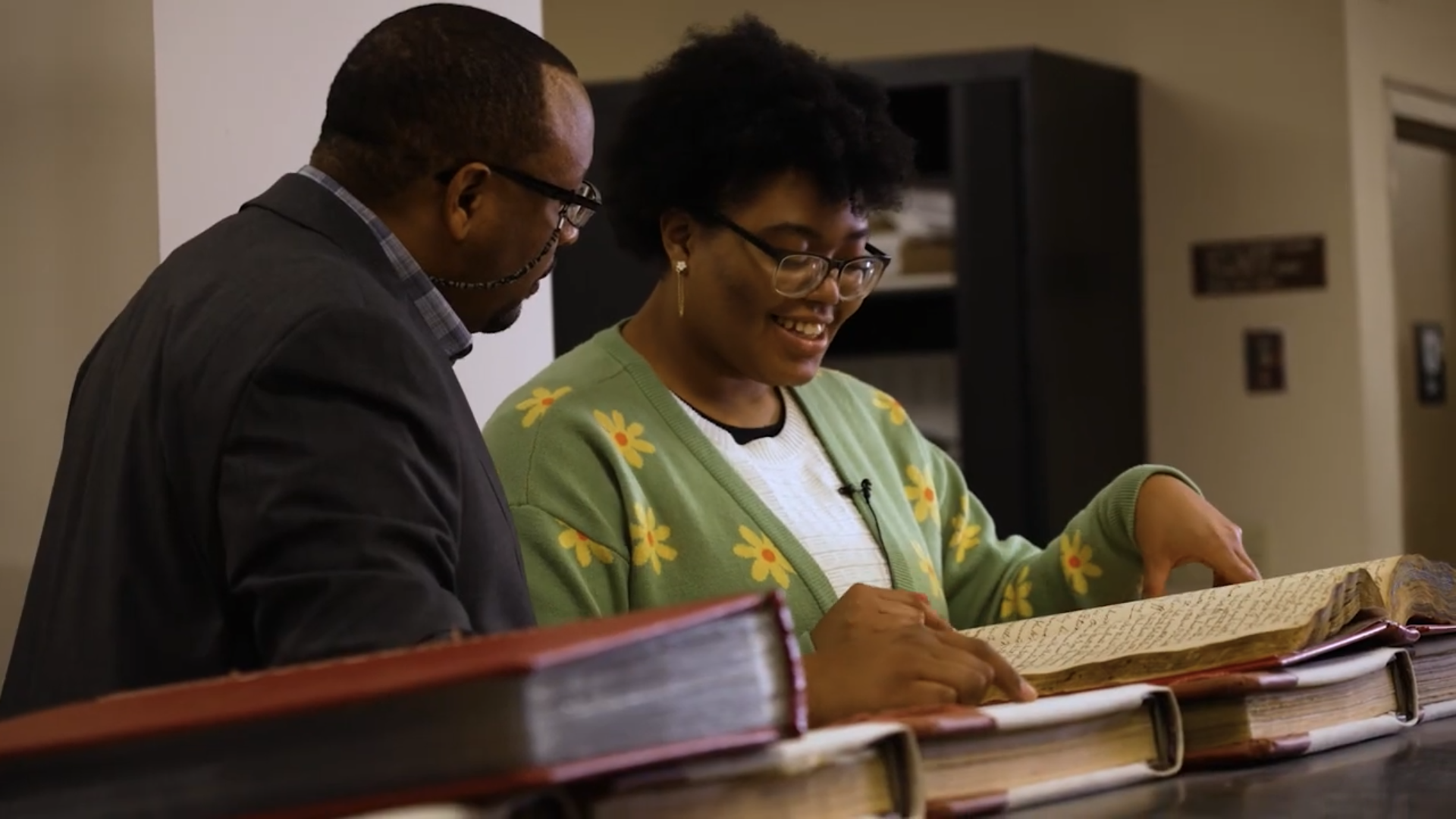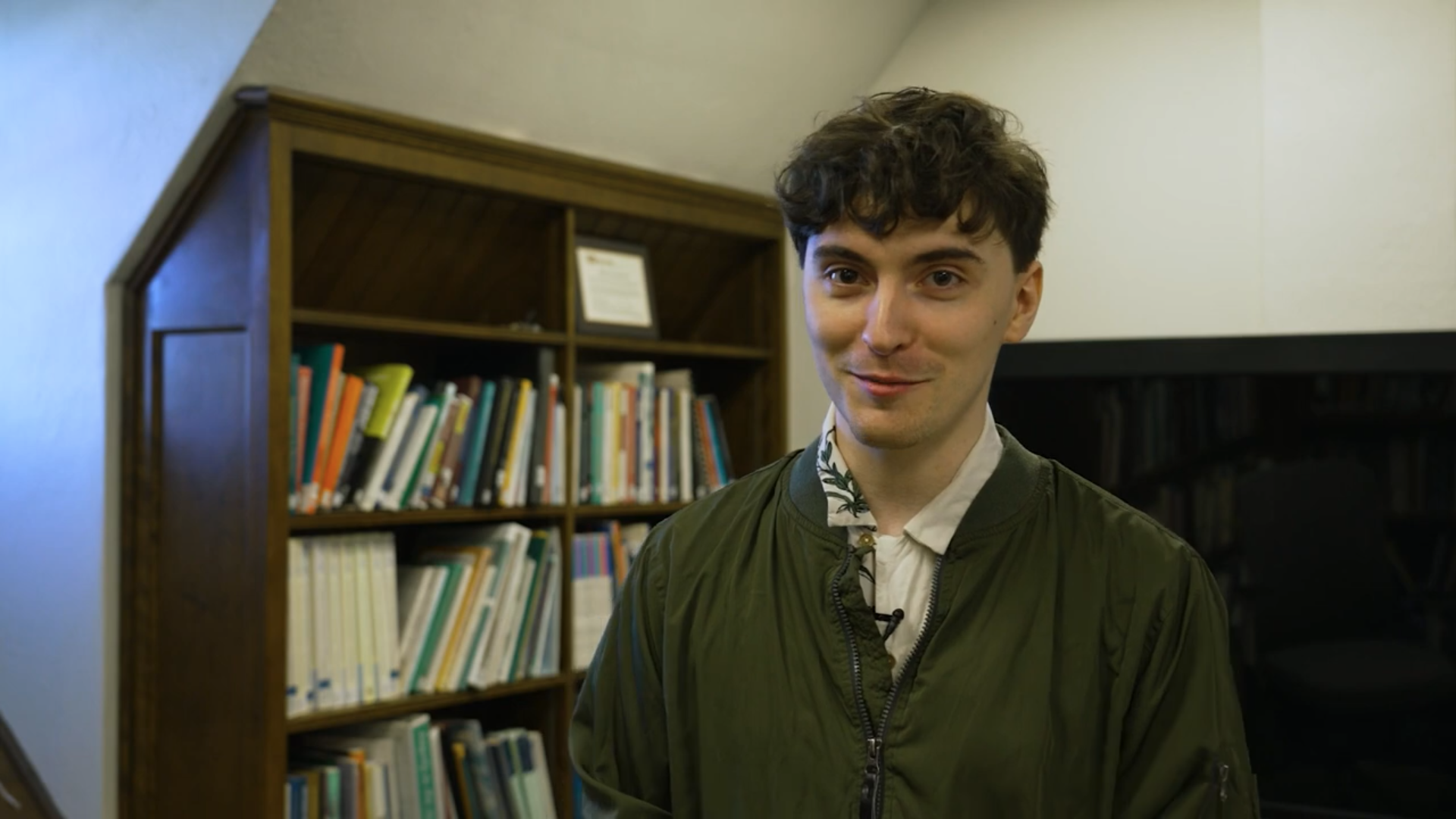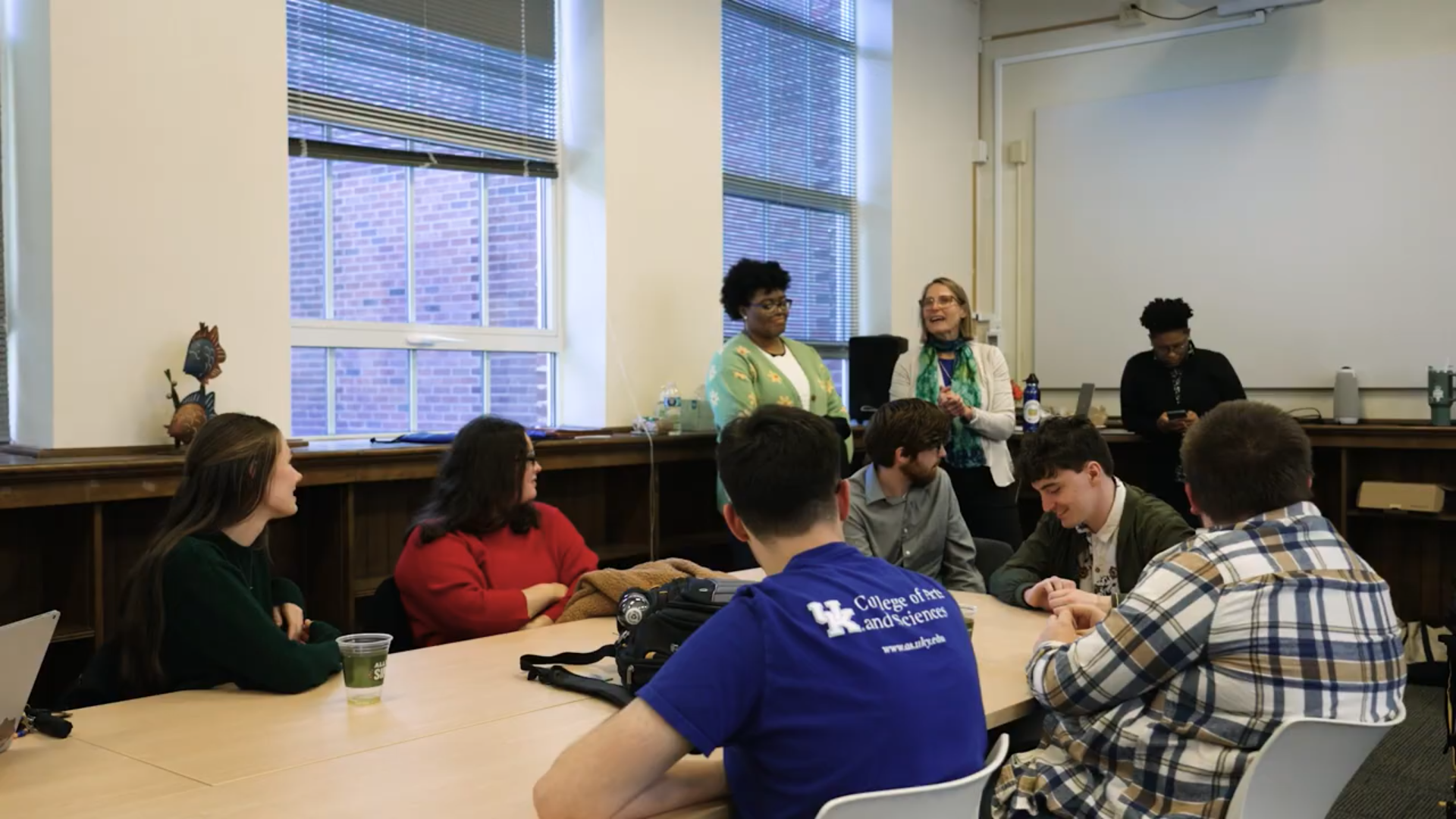Arts and Sciences students use digital tools to bring stories of enslaved people in central Kentucky to light
By Jennifer T. Allen

LEXINGTON, Ky. (Feb. 8, 2024) - When Tantalissia Champs and James Lin registered for a slavery and records practicum taught by Kathryn Newfont in the fall of 2023, they had no idea how impactful their experience would be.
“Being in the class and realizing that we were part of something bigger than ourselves; that we were bringing out the stories and the lives of enslaved people primarily in Kentucky was very meaningful,” said Champs, a senior African American and Africana Studies major in the University of Kentucky College of Arts and Sciences.
The history course gave both students hands-on experience with newly digitized 19th-century Fayette County public records as part of a major, first-of-its-kind project led by University of Kentucky scholars and community partners – the Digital Access Project (DAP). DAP aims to help families and researchers piece together information and previously unknown stories about central Kentucky, including the lives of enslaved people who lived in the region.
“The feeling of doing work that is bigger than yourself is always rewarding,” said Lin, a senior history and political science major in Arts and Sciences. “When you are bringing out names of people who were forgotten, and you bring forth those names of the oppressed and not just the oppressor, it just feels good.”

Both students felt such a connection to the work being done, they continued after the semester ended.
“It went beyond just learning about something, we are actually contributing to something,” Lin said. “I need to keep doing this. I need to keep sticking with it because I feel like I am making a tangible impact.”
Champs remembers early in the semester when she found documents about John Wesley Hunt, a prominent figure and slave trader in Lexington in the early 19th century.
“We are bringing dignity and life back to people who had it stripped away during their lifetime,” she said. “I’ve continued with our work on John Wesley Hunt. I’m trying to look at his accounts once he passed away to see where the enslaved people under his name went and trace their lives that way. It is such rewarding work to help tell their stories.”
Downtown Lexington was the site of one of the biggest slave markets in the Southeastern United States. Thousands of transactions recorded in Fayette County contain names of the enslaved population prior to emancipation and the official end of slavery on Dec. 6, 1865. In the late 1890s, newspapers across the country contained "information wanted" ads placed by formerly enslaved people looking for family members who had been sold and separated from them in Lexington. Generations of their descendants have been searching for biographical information to piece together their family histories, but these clues have only been accessible by viewing the handwritten paper records in person at the Fayette County Clerk’s office, which are often difficult to read and locate.
That is where DAP comes in. Publishing these historical property records online will help answer these questions that still linger for many Black families today.
The Digital Access Project includes many collaborators working together and Champs and Lin have especially enjoyed working with UK history professor Kathryn Newfont and Shea Brown, special projects deputy and supervising director of the DAP at the Fayette County Clerk’s office. Brown is also the co-director of DAP with Vanessa Holden, associate professor of history and African American and Africana studies at UK and director of the Central Kentucky Slavery Initiative. “This project has expanded and will continue to expand and that is in a large part due to Dr. Newfont and Dr. Shea. I think they are absolutely amazing,” Champs said.
“The contributions of passionate students like Tantalissia and James, together with excellent leadership from my colleagues Vanessa Holden and Shea Brown, make DAP what it is: a pathbreaking national model for collaborative public-facing history research,” Newfont said. “At DAP, we simply could not be where we are today without the UK student curiosity and dedication these two undergraduate collaborators demonstrate so well.”
As they continue their work, Champs is digitizing documents and back indexing to help refine searches, while Lin has begun looking at the possibility of incorporating optical character recognition.
“Sometimes the handwriting on the documents is very difficult for people who aren’t trained to read it,” Lin said. “We are working on a process in which people are able to easily transcribe those documents so they can read them without assistance.”
Lin hopes the groundwork on this project that has been set in Fayette County will lead other counties and states to also pursue this type of research and digitization.
“There are people out there with a more privileged perspective of their family history, where they know exactly where their great, great, great, great, great grandparents came from,” Lin said. “Through this project, we are finding people that have been lost to time, lost to history and we’re bringing them forward to hopefully help people find where their families went and learn more about their family history.”
Champs' experience in Dr. Newfont’s class and through the DAP have helped cement her love of research which has extended to her senior capstone where she is researching the history of fugitive slaves in Kentucky and the importance of the Ohio border.

“I love research, especially about Black history, and making an impact,” Champs said. “Being involved in the Digital Access Project, you get to be part of something that is so much bigger than yourself – such an important history that is often overlooked.”
As they look to the future, both Champs and Lin are excited to continue contributing to the Digital Access Project.
“DAP is an ever-growing thing,” Lin said. “We want to continue expanding the collection and expanding awareness. That I can continue doing work that inspired me so much last semester is remarkable.”
Learn more about the Digital Access Project here.
